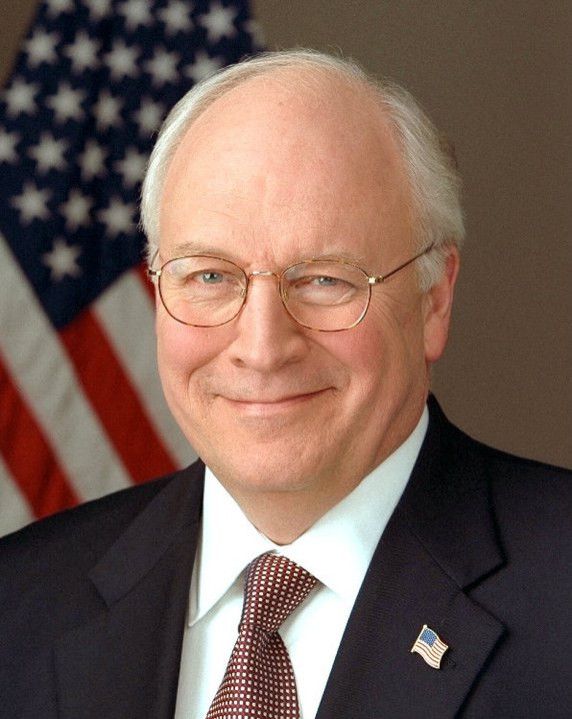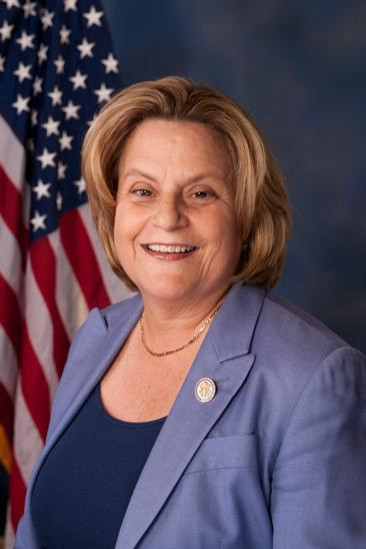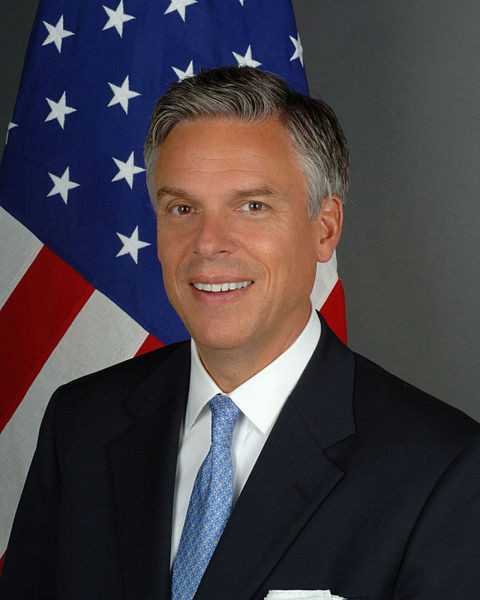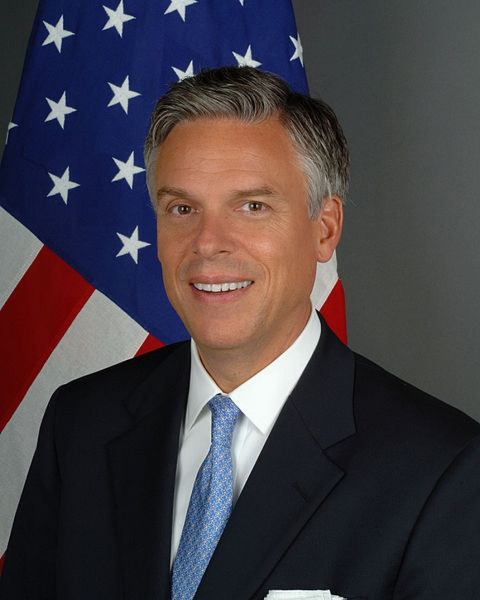GOP Sen. Rob Portman Comes Out In Support Of Gay Marriage, 5 Other Politicians Who Switched Their Stance [PHOTOS]
Sen. Rob Portman has done something no other sitting Republican senator has done before.
In several interviews including an op-ed piece with Ohio newspapers, Portman came out in support of gay marriage.
“I have come to believe that if two people are prepared to make a lifetime commitment to love and care for each other in good times and in bad, the government shouldn’t deny them the opportunity to get married,” Portman wrote in The Columbus Dispatch.
He says his opinion stems from his son, who is openly gay.
“As we strive as a nation to form a more perfect union, I believe all of our sons and daughters ought to have the same opportunity to experience the joy and stability of marriage,” Portman wrote.
But the Ohio Republican hasn’t always felt this way toward same-sex marriage. Portman co-sponsored the 1996 Defense of Marriage Act (DOMA), which defines marriage as “only a legal union between one man and one woman as husband and wife.”
Portman says that after his son came out, he found a way to see the issue from a new perspective.
“Ultimately, it came down to the Bible’s overarching themes of love and compassion and my belief that we are all children of God,” he writes explaining how he reconciled his faith with accepting gay marriage.
Portman told Cleveland.com he consulted with former Vice President Dick Cheney on his decision to go public with his opinion. Cheney, whose daughter is gay, told him to "do the right thing, follow your heart."
Portman’s public revelation comes at the heels of the U.S. Supreme Court arguments over the issue. He says he wanted to go public “before the politics of these court decisions make it more difficult to have an honest discussion."
Although Portland is the only sitting Republican senator to embrace same-sex marriage and his own state of Ohio banned it, public support for gay marriage has grown.
According to a Pew poll conducted last October, 49 percent said they favored allowing gays and lesbians to marry legally and 40 percent were opposed. In 2008, those numbers were almost reversed, the New York Times reported.
On the same day Portman revealed his stance toward gay marriage, Republican Sen. Marco Rubio of Florida defended his opposition towards the issue.
“Just because I believe states should have the right to define marriage in a traditional way does not make me a bigot,” he said at the Conservative Political Action Conference on Thursday.
Below are 5 other politicans who surprised others by switching their views toward gay marriage:
Bill Clinton
In 1996, former President Bill Clinton signed the Defense of Marriage Act. On March 7, Clinton wrote an opinion piece for the Washington Post stating that the act is unconstitutional and should be overturned.
Dick Cheney

Former Vice President Dick Cheney came out in support of gay marriage in at an awards ceremony in 2009. “I think people ought to be free to enter into any kind of union they wish. Any kind of arrangement they wish,” he said citing his daughter, Mary, who is gay. Last June, Mary married her longtime partner, Heather Poe, in Washington, D.C.
Rep. Ileana Ros-Lehtinen

Republican congresswoman Rep. Ileana Ros-Lehtinen of Florida was the first member of her party to support repeal of the Defense of Marriage Act. Ros-Lehtinen has a transgender son.
Jon Huntsman Jr.

Former Republican presidential candidate and former governor of Utah, Huntsman wrote an op-ed piece urging conservatives to push for marriage equality in their respective states. “My marriage has been the greatest joy of my life,” he wrote. “There is nothing conservative about denying other Americans the ability to forge that same relationship with the person they love.”
Arnold Schwarzenegger

Former California Gov. Arnold Schwarzenegger publicly switched his stance on gay marriage in 2004. Speaking on national television he said that it would be “fine with me” if California changed its state code to allow same-sex unions.
© Copyright IBTimes 2025. All rights reserved.





















